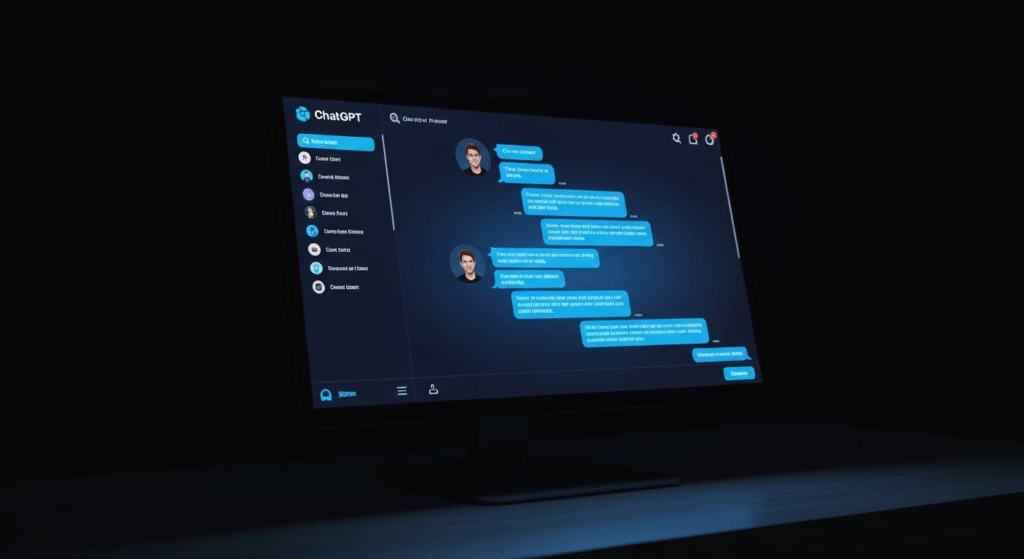That blinking cursor on a blank page. The spreadsheet that feels like a labyrinth. The creative block that just won’t lift. If you’ve ever faced these modern frustrations, you’re not alone—and millions are discovering an unlikely ally: ChatGPT. But beyond the viral headlines and sci-fi fears, how are real people actually integrating this AI tool into their lives? Spoiler: It’s less about robots taking over, and more about humans working smarter.
🤖 What Exactly Can ChatGPT Do? (No Jargon, Promise!)
Think of ChatGPT as a turbocharged brainstorming partner, researcher, and editor rolled into one. Trained on massive amounts of text data, it generates human-like responses based on your prompts. Key capabilities:
- Answer questions (like a very fast, tireless librarian)
- Generate text (emails, reports, stories, code snippets)
- Summarize complex info (PDFs, articles, meeting notes)
- Translate languages (with surprising nuance)
- Brainstorm ideas (marketing angles, plot twists, project names)
“It’s not about replacing human thought, but augmenting it,” explains Dr. Ethan Mollick, Wharton Professor & AI researcher. “Used well, it acts like a cognitive bicycle—extending what our brains can accomplish.”
🚀 Real-World Wins: Unexpected Ways People Are Leveraging ChatGPT
💼 Career & Productivity Hacks
- Sarah, Freelance Writer (Chicago): “I use it to break through writer’s block. I’ll paste my messy outline and ask: ‘Suggest 3 compelling angles for this section.’ It sparks ideas I wouldn’t have considered alone.”
- Raj, Startup Founder (Bangalore): “Drafting investor emails used to take hours. Now I feed ChatGPT bullet points about our milestones, and it crafts a structured, persuasive draft in 60 seconds. I edit heavily, but it saves my sanity.”
- Research Powerhouse: Stuck on a technical topic? Ask ChatGPT to “Explain [concept] like I’m a 10th grader,” then refine: “Now explain the practical applications for a small business owner.”
🎨 Creativity Unleashed
- Maya, Indie Game Developer (Berlin): “I describe a character’s personality and setting, and ChatGPT generates unique dialogue options. It’s fantastic for fleshing out NPCs quickly.”
- David, Music Teacher (Toronto): “Struggling to explain music theory? I ask: ‘Give me a metaphor for understanding chord progressions.’ Yesterday it suggested ‘a conversation between friends’—students loved it.”
- Content Ideation: Bloggers feed it headlines and ask: “Suggest 5 surprising subheadings that challenge conventional wisdom on this topic.”
📚 Learning & Personal Growth
- Language Practice: Have conversations in Spanish, French, or Japanese. Ask: “Correct any errors and suggest more natural phrasing in this sentence.”
- Skill Building: *”Create a 4-week beginner learning plan for understanding basic Python, including key concepts and practice exercises.”*
- Critical Thinking: Debate it! “Argue against renewable energy subsidies, then provide counterpoints to your own argument.”
⚠️ The Crucial Caveats: Where ChatGPT Falls Short (And How to Stay Safe)
ChatGPT isn’t magic. Blind trust leads to trouble. Here’s what experts warn:
- Hallucinations are Real: It confidently invents facts, quotes, and citations. Always verify critical information with trusted sources.
- Bias Amplifier: It reflects biases present in its training data. Be critical of assumptions in its outputs.
- No True Understanding: It predicts words, not meaning. Don’t rely on it for nuanced emotional advice, legal counsel, or medical diagnosis.
- Privacy Matters: Never share sensitive personal info, company secrets, or unpublished creative work.
“Treat ChatGPT like a brilliant but eccentric intern,” advises Mia Shah-Dand, Founder of Lighthouse3 AI Ethics Consulting. “Their work needs fact-checking, context, and your human oversight before it goes out the door.”
✨ Beyond the Basics: Unexpected & Impactful Uses
- Accessibility Champion:
- Users with dyslexia use it to rephrase complex text into simpler language.
- Non-native speakers draft emails, then ask: “Make this sound more professional for a UK business audience.”
- Community Helper:
- Refugee aid organizations use it (carefully!) to translate legal documents and draft multilingual resource guides.
- Non-profits generate draft grant proposals faster, freeing up time for mission work.
- Personal Archivist:
- Paste notes from a book or podcast and ask: “Summarize key insights in bullet points” or “Connect these ideas to [my specific project].”
🛠️ Getting Started: Practical Tips for Using ChatGPT Effectively
- Be Specific: “Write a blog intro” is weak. Try: *”Write a conversational 100-word intro for a blog post targeting small business owners about time-saving ChatGPT hacks, using a ‘stuck in traffic’ metaphor.”*
- Iterate & Refine: Treat the first output as a rough draft. Ask: “Make this more concise,” or “Add a statistic here,” or “Use a more skeptical tone.”
- Provide Context: *”You are an experienced science teacher explaining photosynthesis to a curious 8-year-old. Use an analogy involving baking a cake.”*
- Combine Tools: Use ChatGPT for drafting, Grammarly for grammar, and your brain for final judgment and originality.
- Stay Curious & Critical: Experiment! But always ask: “Is this accurate? Is this useful? Does this sound like me?”
🔮 The Future of Human-AI Collaboration
ChatGPT isn’t the endpoint; it’s a signpost. We’re moving towards tools that:
- Understand context deeper (your personal writing style, company tone of voice).
- Integrate seamlessly into workflows (email clients, design software, coding IDEs).
- Become more transparent about sources and confidence levels.
“The most successful users won’t be prompt engineers, but humans who know how to ask great questions, critically evaluate answers, and apply them with wisdom,” predicts Dr. Mollick.
💡 The Bottom Line: Is ChatGPT Right for You?
Try it if you:
- Wrestle with repetitive writing tasks
- Need creative sparks or new perspectives
- Want to accelerate learning curves
- Can commit to being a vigilant editor and fact-checker
Skip it (for now) if you:
- Expect flawless, ready-to-publish results
- Handle highly sensitive or legally binding information
- Aren’t willing to invest time learning its quirks
One thing is clear: Ignoring tools like ChatGPT won’t make them disappear. Learning to harness them thoughtfully is becoming a modern superpower. The question isn’t if you’ll use AI, but how well.
What’s one task you’d love to offload? Share below – let’s brainstorm prompts!
ChatGPT use cases, how to use ChatGPT effectively, ChatGPT for work, ChatGPT for creativity, ChatGPT limitations, AI productivity tools, prompt engineering tips, ChatGPT examples, is ChatGPT safe



Pingback: 8th Pay Commission Salary Hike
cannabis gummies online available with fast shipping